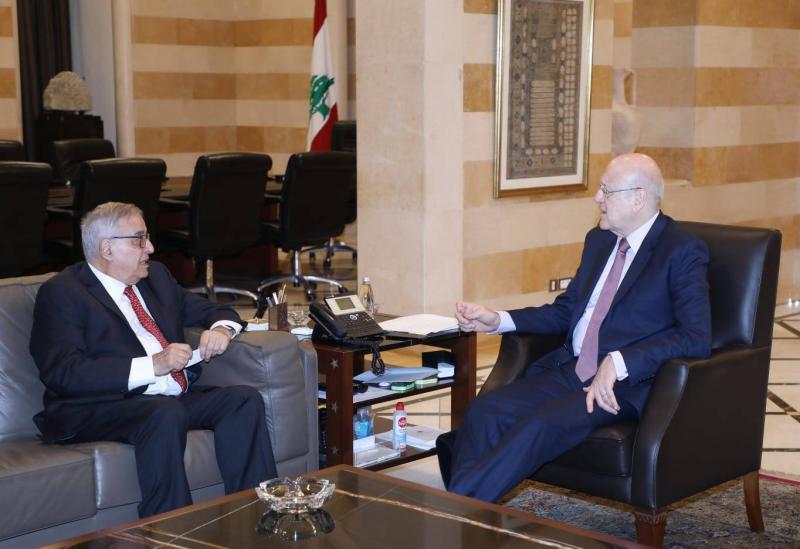After his meeting with caretaker Prime Minister Najib Miqati, Foreign Minister Abdullah Bou Habib clarified that "matters concerning the ministry were discussed." Regarding the request from the head of the Maronite League for the Foreign Ministry to intervene regarding a draft resolution that the European Parliament will vote on, which he considers an insult to what the Lebanese people have offered to the Syrian people, he stated: "I have received this matter and sent it to the Chairman of the Foreign Affairs Committee in the House of Representatives, MP Fadi Alama." Bou Habib pointed out that "there is an agreement made in 2006 and a resolution issued by the United Nations Security Council under number 1701, and there is work on the ground between UNIFIL and the Lebanese army, and a relationship between them. We want UNIFIL to perform its duties without issues, and therefore, it is preferable for it, and it is convinced of this, to be accompanied by the Lebanese army." He added, "The Lebanese army does not have these capabilities yet, and while it is increasing its numbers in the south, it cares about security throughout the country. There is full cooperation in the south, and about 80% of UN patrols take place with the presence of the Lebanese army, and we want that percentage to be higher so they do not face problems because the residents feel more comfortable with the presence of the army."
Miqati also received MP Inaam Azeddine, who stated after the meeting: "This visit to President Miqati comes within the framework of close cooperation between the executive authority and the House of Representatives regarding the preparation for the 'Summit on Food Systems Transformation and Evaluation of Food Systems,' which will be held in Rome from July 24 to 26, following my appointment as the national coordinator for national dialogues to initiate this transformation towards food systems." She continued: "This cooperation with the executive authority has been ongoing for a long time, and this moment comes to crown this cooperation with the process of developing the national plan with the necessary priorities in collaboration with all relevant ministries, stakeholders, international organizations, foremost among which are UN organizations, civil society, and youth organizations in Lebanon, with whom we have had all the necessary dialogues. Since May until now, we have held discussions with 51 participants from different bodies and about 32 stakeholders, and we are in the process of announcing the preliminary draft to become the national plan for a just, resilient, and inclusive sustainable food system."
Regarding the concept of the right to food and whether it means allocating financial resources for food, Azeddine said: "The World Food Program provides in-kind and financial assistance for food, but this is not a sustainable or healthy solution. We cannot build a long-term sustainable solution based on actions taken in emergencies. This path must be integrated into a long-term vision that ensures the right to food. This means the right for individuals to obtain healthy food that aligns with their dietary habits, and this should be based on preserving environmental safety; if there is pollution in water and soil or intensive use of agricultural pesticides and certain antibiotics, the food will be contaminated."
Miqati also received a delegation from the "We are All Beirut" group, led by former Minister Mohammad Choucair, who said after the meeting: "We informed President Miqati about our group's activities and the political movement we are engaged in, and we discussed the presidential election issue and the importance of electing a president for the republic as soon as possible." Choucair added: "We also talked about the living and economic conditions in Beirut and the tourism movement, and we wished for him to work as much as possible to complete the presidential elections because, despite all the movements in the country, it is inevitable to elect a president for the republic as soon as possible, and a new government must be formed, as the vacancy that will occur at the end of the month and other upcoming vacancies in major positions will all be catastrophic for the situation." The Prime Minister also met with the Lebanese Ambassador to Algeria, Mohammad Hassan.




